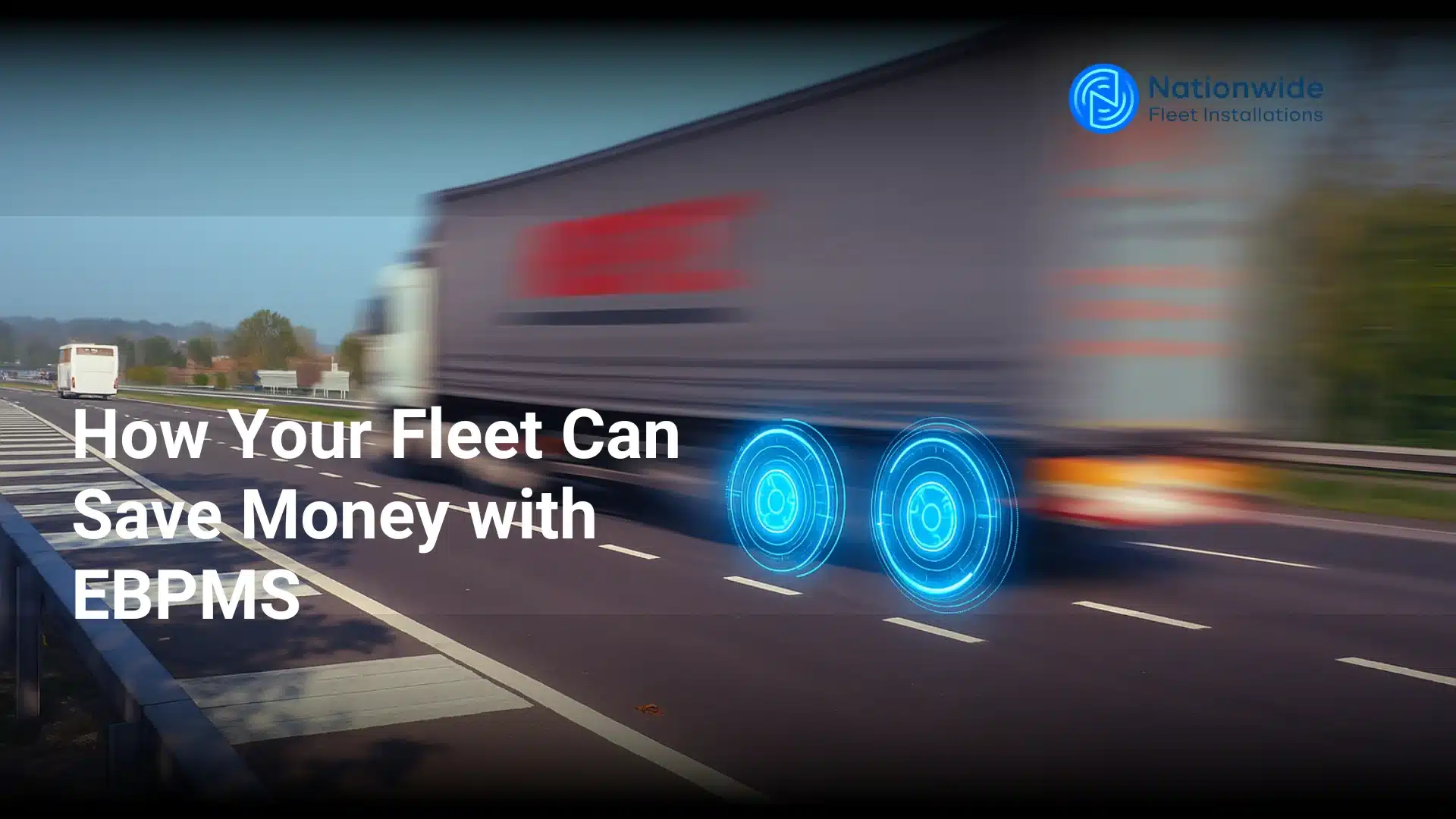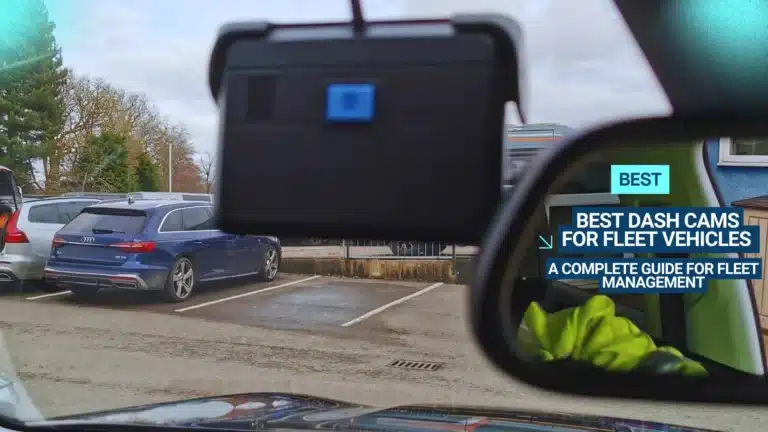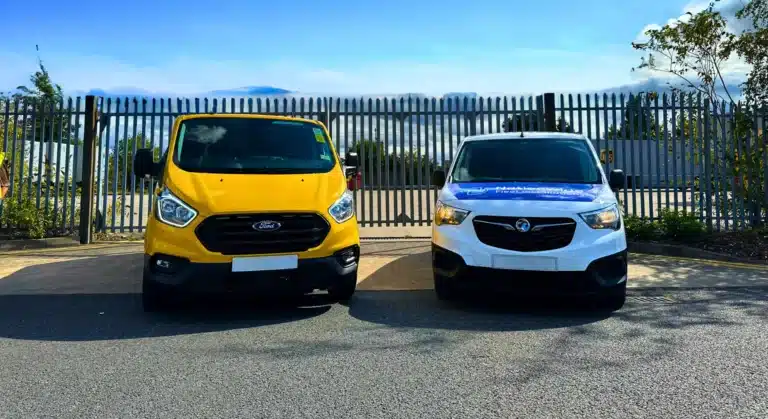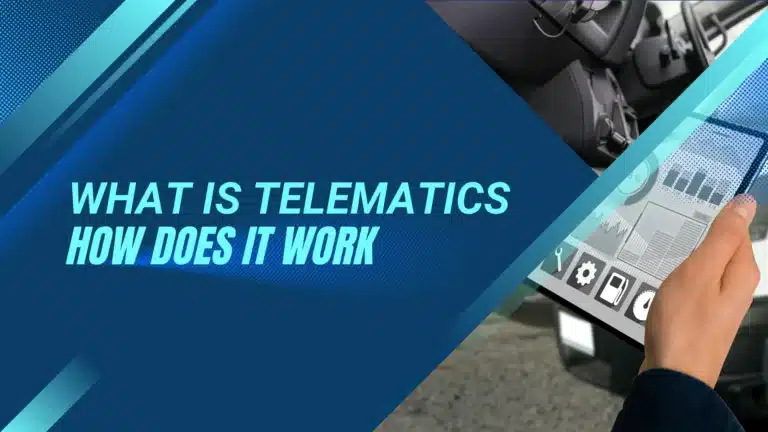How Your Fleet Can Save Money with EBPMS

Since April 2025, new DVSA guidance requires HGVs and trailers to undergo a laden roller brake test (RBT) at least four times a year, including during the MOT. This is a big shift from the previous requirement of just one test annually.
However, if your fleet is equipped with an Electronic Braking Performance Monitoring System (EBPMS), you may be exempt from the additional tests, providing an opportunity to reduce costs and minimise vehicle downtime.
The Costs of Traditional Brake Testing
Roller brake tests have long been the standard for measuring brake effectiveness. However, they come with added costs and logistical challenges.
Each RBT takes time, and with the new requirement to test four times a year, the time adds up fast, especially for busy fleets operating nationwide. Vehicles and trailers must be taken off the road, driven to a brake testing site, and in some cases, wait a couple of days for a slot.

That means lost hours and delayed deliveries, not ideal when your vehicles are needed on the road. Finding accessible RBT sites can also be a problem, particularly in more remote areas. Add in the admin and paperwork involved with every brake test, and it’s clear how much resource can be required to stay compliant.
And then there’s the cost of the test itself. At four tests per year, per vehicle or trailer, these routine checks can eat into your operating budget very quickly. The DVSA recommends spacing these tests out evenly throughout the year, with one of them being the MOT. That’s a lot of scheduling, tracking, and time off the road.
What is EBPMS?
EBPMS stands for Electronic Braking Performance Monitoring System. It’s a technology that records and monitors brake performance during everyday use. Instead of taking a vehicle off the road to measure how well the brakes are working, EBPMS collects braking event data automatically during normal driving.

This data is then analysed to produce a braking performance value over time, giving you a real-world picture of your vehicle’s braking health. You can generate performance reports and get notified when any values fall below the DVSA threshold.
When you have an EBPMS installed, the number of RBTs required each year drops from four to just one, typically carried out at the MOT. That’s a big time and cost saving across your entire fleet. It also means less hassle for your admin and fewer interruptions for your drivers.
Safety and Efficiency Go Hand in Hand

Real-time brake data also brings other benefits. EBPMS can help spot problems early, before they develop into bigger, more expensive issues. Traditional brake tests are reactive, they show you a snapshot of performance on the day of the test. But EBPMS provides continuous monitoring, making it easier to stay ahead of potential faults.
This proactive approach improves vehicle safety and can reduce the risk of accidents caused by poor braking. It also improves fuel efficiency. If brakes are binding or not working evenly, it can create drag, which uses more fuel. Catching these issues early keeps your vehicles running more efficiently and safely.
A Smarter Way to Manage Fleet Compliance
EBPMS doesn’t just support brake testing, it can form part of a wider vehicle compliance and fleet management strategy. Some systems can integrate with your existing telematics, tyre pressure monitoring (TPMS), and trailer tracking technology. This helps create a complete picture of your vehicle health and location, saving even more time and resources.

For example, if your EBPMS integrates with trailer tracking, you can quickly locate trailers when needed, saving time chasing up lost or misplaced units. Pair that with real-time brake health data and tyre pressure alerts, and you’ll have a clear view of both safety and efficiency across your fleet.
Remember: You’re Responsible for Trailer Safety
It’s worth repeating, fleet operators are responsible for the condition of any trailer coupled to their vehicle. If the trailer is found to be unsafe, the driver and the operator can be issued with a prohibition notice, fixed penalty, or even penalty points. Having an EBPMS in place helps demonstrate that you’re actively monitoring braking performance and prioritising safety.
DVSA Guidance
For full guidance from the DVSA, please see:
Electronic braking performance monitoring system (EBPMS): industry standard specification
If you’re looking to install EBPMS in your fleet, we’re here to help. We provide nationwide installation for HGV fleets across the UK. Contact us today to discuss your requirements.






